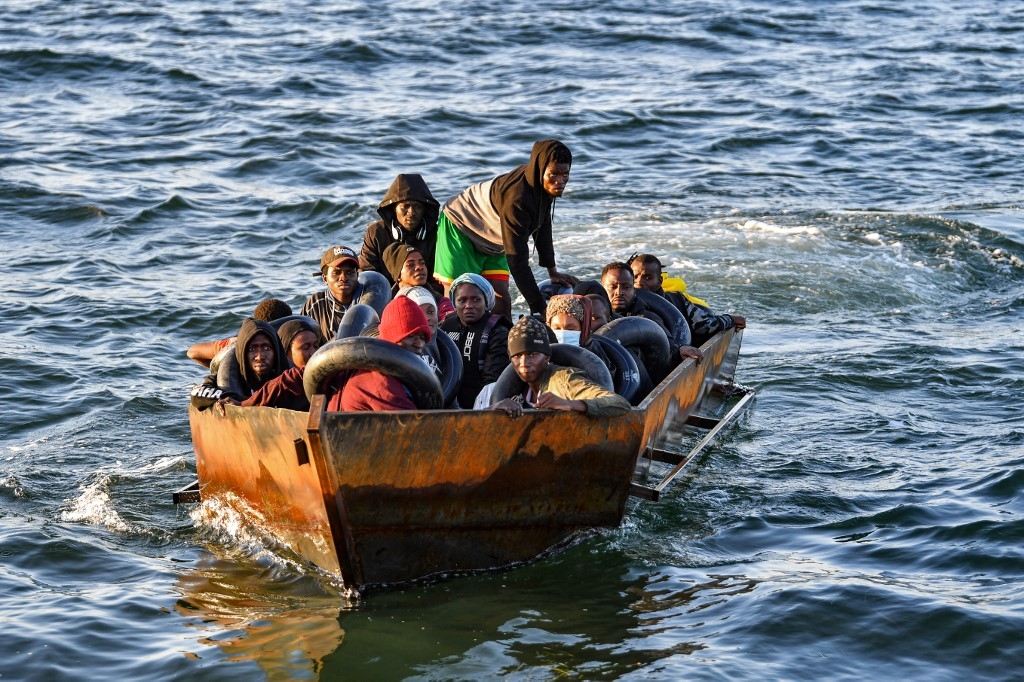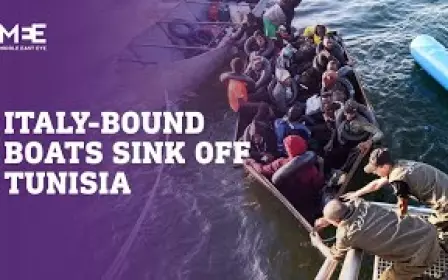Tunisia and EU sign pact to stem migration

Tunisia and the European Union on Sunday signed a "strategic partnership" deal that included combatting human traffickers and tightening borders during a sharp increase in boats leaving the North African nation for Europe.
The deal followed weeks of talks and Europe's pledge of major aid to Tunisia amounting to €1bn ($1.12bn) to help its battered economy, rescue state finances and deal with a migration crisis. Most funds are contingent on economic reforms.
"It contains agreements on disrupting the business model of people smugglers and human traffickers, strengthening border control and improving registration and return," Dutch Prime Minister Mark Rutte said on Twitter.
"All essential measures for bolstering efforts to stop irregular migration."
The European Commission chief Ursula von der Leyen said the bloc would allocate €100m to Tunisia to help it combat illegal migration. The deal promotes macro-economic stability, trade and investment, green energy transition and legal immigration.
Stay informed with MEE's newsletters
Sign up to get the latest alerts, insights and analysis, starting with Turkey Unpacked
Thousands of undocumented African migrants have flocked to the city of Sfax in recent months seeking to head for Europe in traffickers' boats, amounting to an unprecedented migration crisis for Tunisia.
"We are very pleased. It is a further important step towards creation of a true partnership between Tunisia and the EU, which can address in an integrated fashion the migration crisis," Italian Prime Minister Giorgia Meloni said.
Meloni, whose country has suffered a sharp increase in immigration boats, said that there would be an international conference on migration in Rome next Sunday with a number of heads of state, including Tunisian President Kais Saied.
Deepening crisis
Some 75,065 boat migrants had reached Italy by 14 July against 31,920 in the same period last year, official data showed.
More than half left from Tunisia, overtaking Libya, which had traditionally been the main launchpad.
Recent tragedies include the sinking of a boat on its way to Italy on 13 July, when the Tunisian coastguard reported recovering the bodies of 13 sub-Saharan African migrants and rescuing 25 others.
The coastguard reported that the incident took place off the coast of Sfax, though they did not specify the boat's distance from the shore at the time of the sinking.
On 9 July, at least 10 people were missing and one died after a boat attempting to reach Italy sank off the coast of Tunisia.
Tunisia's coastguard rescued 11 people from the boat, which capsized off the coast of the southeastern town of Zarzis.
The number of people dead or missing due to boat sinkings off the Tunisian coast has reached 608, the Tunisian Forum for Economic and Social Rights said last Saturday.
The country's coastguard had foiled 33,000 people from attempting to board boats, the rights group added, without specifying a time period for those interventions.
Tunisia has been engulfed in a deepening political crisis since July 2021, when Saied unilaterally suspended parliament and dissolved the government.
After the power grab, the plans for which were first revealed by Middle East Eye, Saied decided to rule by decree, a move his opponents decried as a "constitutional coup".
Tunisia's economy is in a state of collapse, burdened by rampant inflation and a scarcity of essential goods. This crisis has been further intensified by the ongoing conflict in Ukraine.
Middle East Eye delivers independent and unrivalled coverage and analysis of the Middle East, North Africa and beyond. To learn more about republishing this content and the associated fees, please fill out this form. More about MEE can be found here.





